Heat, humor and heartbreak: Oscars tales of winners, losers and famous jerk boyfriends

Meryl Streep was six months pregnant when she struggled to fit into her seat at the Dorothy Chandler Pavilion for the 55th Academy Awards in 1983.
Her dress, which she bought off the rack in the basement of Saks, was ill-fitting. It was too short in the front to hide her protruding belly, so she wore it backwards and covered her midriff with a little train.
“People didn’t have stylists and designers and all that stuff,” she said. “I thought I was so smart.”
Streep was up for Best Actress for her acclaimed performance as a Polish Holocaust survivor in “Sophie’s Choice.”
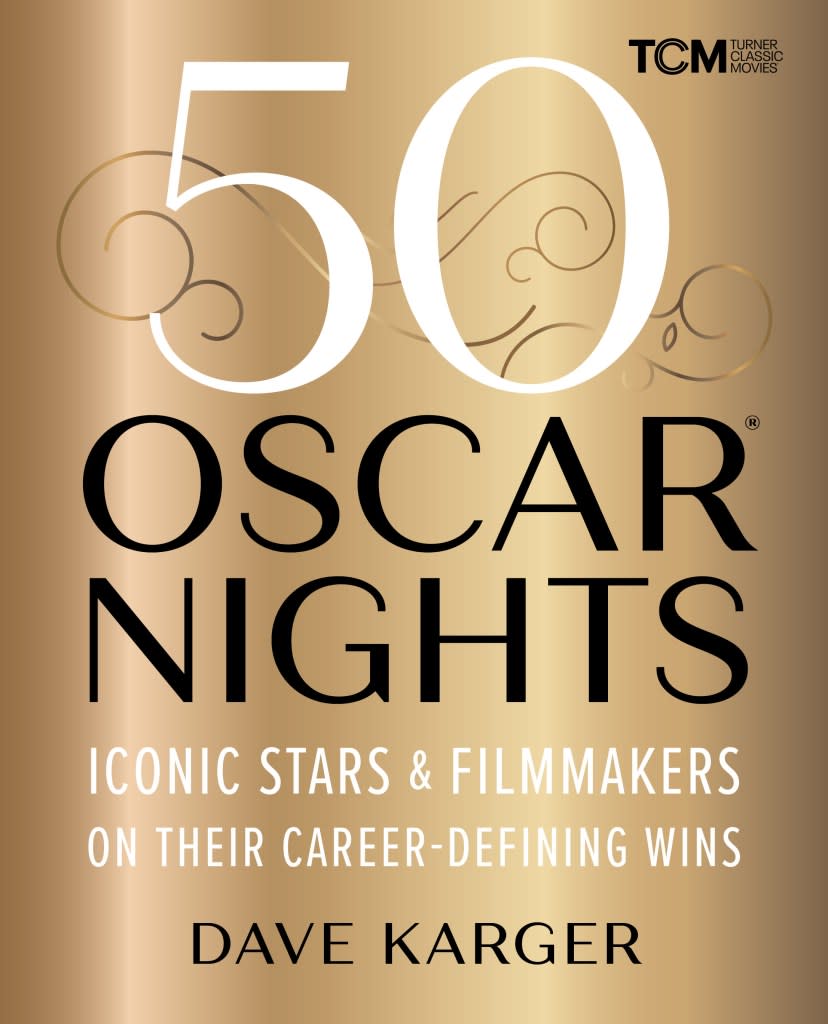
But she faced a tough competitor — Jessica Lange, who was nominated for her portrayal of the mentally unstable actress Frances Farmer in “Frances.”
Lange pulled off a neat trick that year: She was also nominated for Best Supporting Actress for her performance in “Tootsie.”
Lange won that award, and Streep could feel the momentum in the theater moving toward her rival.
When the announcer said, “The Best Actress nominees are….” the actor James Mason, sitting directly in front of Streep, whispered to his wife, “Wouldn’t it be great if Jessica won for both?”
It didn’t turn out that way.
Steep won, tripped over her dress on stage, dropped her speech and, picking it up, flashed her ample behind to 100 million viewers.
But what sticks in her mind after all these years is Mason’s comment.
“There’s always somebody to take you down a peg,” she said.
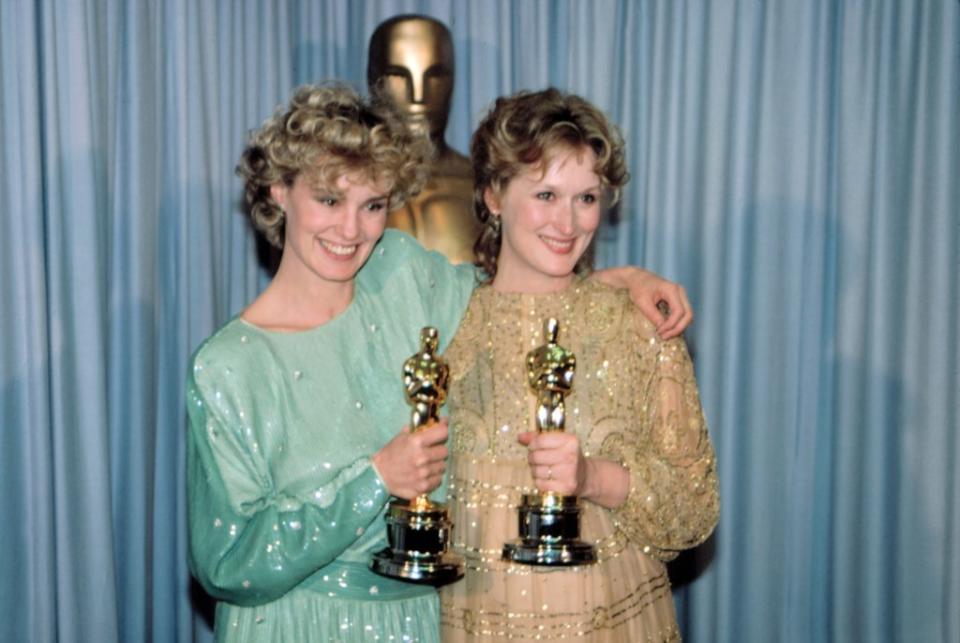
Streep’s Oscar memory, funny and cynical, is one of many Dave Karger recounts in his breezy new book, “50 Oscar Nights: Iconic Stars and Filmmakers on Their Career-Defining Wins.”
A host on Turner Classic Movies and the “Today” show’s Oscar expert, Karger has mined his celebrity contacts to get some fresh — and gossipy — anecdotes about the Big Night and its aftermath.
A few days after Hillary Swank won Best Actress for “Boys Don’t Cry,” for which she was paid $3,000, she went to the drugstore to have a prescription filled.
The bill was $260. She was shocked.
She thought she had insurance through her union, the Screen Actors Guild.
But when she called them, they told her she had to make $5,000 a year to qualify.
“So I had an Academy Award and no health insurance,” she told Karger.
I wish the Oscars were as much fun, suspenseful and classy today as they come off in Karger’s book.
Who’s going to win tonight at the 96th annual awards?
Just a guess here, but I suspect “Oppenheimer” and everybody associated with it.
But I won’t know until Monday morning because, like many viewers, I’ll probably nod off when they start giving out the award for Best Documentary Short Film.
Who could nod off in 1973, when Francis Ford Coppola’s “The Godfather” squared off against Bob Fosse’s “Cabaret.”?
“It was a slam dunk I would win [Best Director,]” Coppola said. He was “shocked” when Fosse won.
It was also a slam dunk that one of the actors from “The Godfather” — Robert Duvall, James Caan, Al Pacino — would win Best Supporting Actor. Joel Grey, who played the Emcee in “Cabaret,” was also in the mix.
“I was sure it was going to be Al Pacino,” Grey said. “But one always has a tiny bit of imagination and hope. ‘And the winner is – I’ll never forget the sound – ‘Joel Grey.’ ”
A fair amount of booze is consumed at the Oscars.
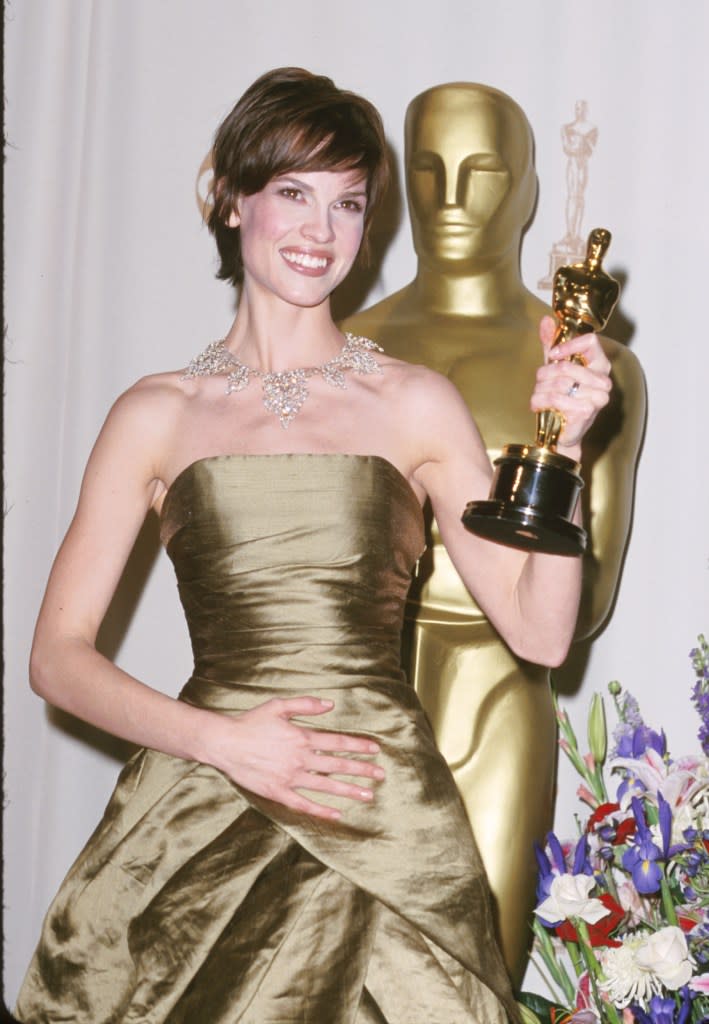
“What’s great is that the bar is right there,” said Olivia Colman, who won Best Actress for “The Favorite” in 2019. “We spent a lot of time in the bar and these panicked men and women with clipboards [kept] going, ‘Your category’s coming up! You’ve got to go!’”
Kristen Anderson-Lopez, who along with her husband Robert Lopez, won the Oscar for their song “Frozen” in 2014, recalled that a friend offered her a swig from his flask just before her category was announced.
She declined.
She wanted to stay “clearheaded to remember every second about this evening.”
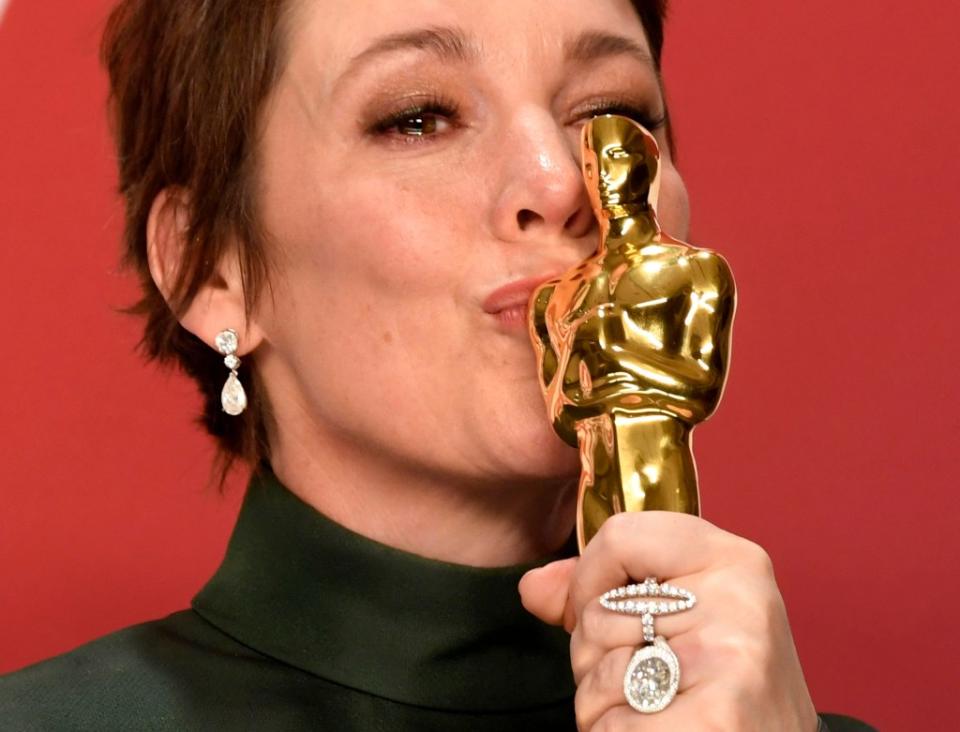
And then John Travolta introduced Idina Menzel as “Adele Dazeem.”
“Pass me the flask!” Anderson-Lopez said to her friend.
She and her husband took a few swigs.
When their names were called, she tried to give Pharrell, a fellow nominee, a hug. “But it looks like I hit him,” she said.
Not every winner had fun at the Oscars.
Marlee Matlin, nominated for her performance in “Children of a Lesser God,” missed the publicity runup to the 1987 ceremony because she was in rehab battling a cocaine addiction.
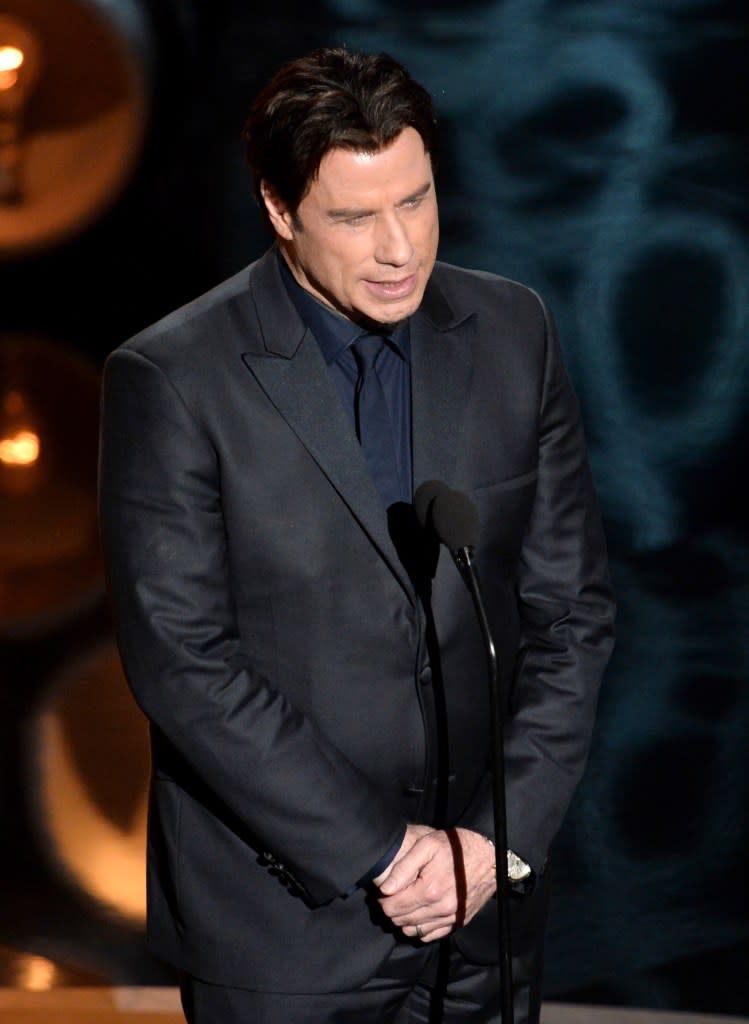
Her date that night was her boyfriend and co-star William Hurt, but their relationship was on the rocks.
She won. He did not.
In their limo after the ceremony, he looked at her Oscar and said, “So you have that little man there next to you. What makes you think you deserve it? A lot of people work a long time, especially the ones you were nominated with, for a lot of years to get what you got with one film.”
Matlin wasn’t the only actress who was dating a jerk at a big moment in her life.
Sally Field, up for her performance in “Norma Rae” in 1980, almost went to the Oscars alone because her boyfriend Burt Reynolds was jealous.
“You don’t think you’re going to win anything, do you?” he sneered. A tearful Field told her friends, the comedian David Steinberg and his then-wife Judy, about Reynolds. “Well, for God’s sakes, we’ll take you,” Steinberg said. They picked her up in a limousine well stocked with champagne. “They made it just wonderful fun,” she said.
Controversy swirled around Jane Fonda, nominated in 1972 for her performance as a prostitute in “Klute.”
The Vietnam War was raging and Fonda took part in many protests denouncing the United States.
The Hollywood establishment, much of it conservative and patriotic, despised her.
She was pretty sure she’d win — her performance remains as fresh as ever — but she wasn’t sure what she should say to a potentially hostile crowd.
She asked her father, Henry Fonda, for advice.
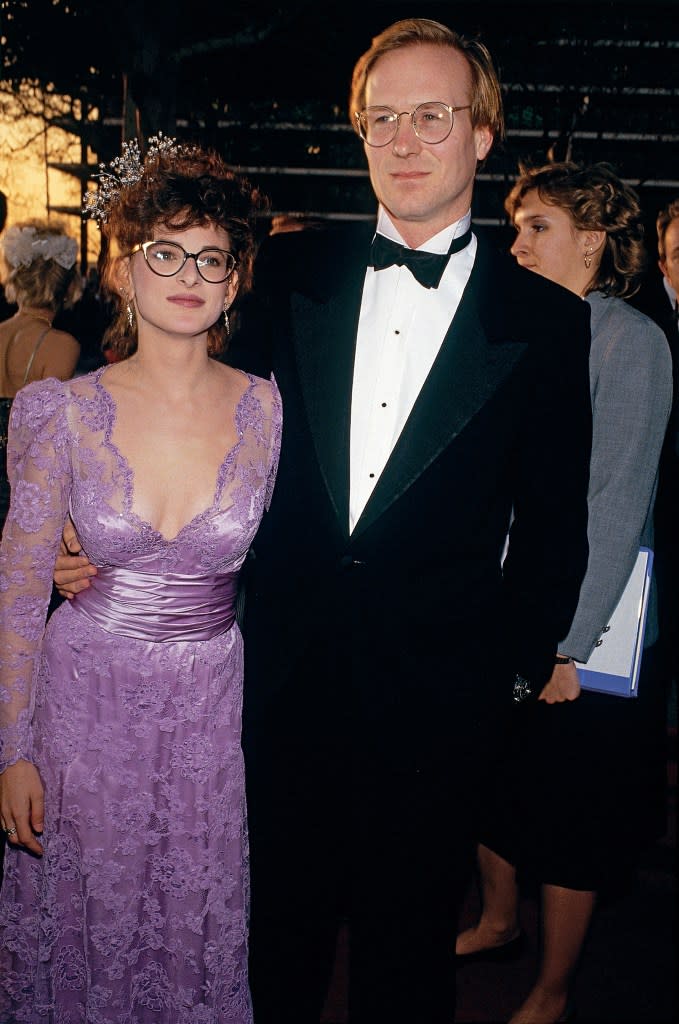
He told her: “Just say, ‘There’s a lot to be said tonight, but this isn’t the time.’”
That’s what she did, and nobody booed.
But she left the stage in tears.
She’d just won an Oscar, but her father, a Hollywood legend, never had.
“It just seemed wrong,” she said.
(Henry Fonda won the Oscar in 1982 for his performance in “On Golden Pond.” He was too ill to attend the ceremony, so Jane accepted the award for him. “Dad, me and all the grandchildren are coming over with it right away,” she said. He died five months later.)
Karger wraps up his chapters by asking the Oscar winners where they keep the statue.
Most are displayed in living rooms or offices.
Mel Brooks gave his (Best Original Screenplay, “The Producers,” 1969) to his mother so she could put it on the TV set in her Florida condo and impress her friends.
But Clint Eastwood, who has three, puts it all into perspective: “They’re all on a shelf in the den along with some other stuff you get along the way, over the years.”
